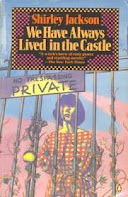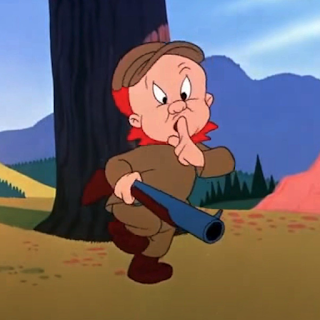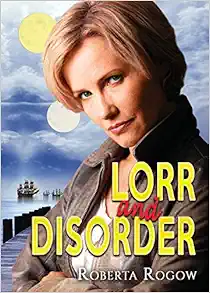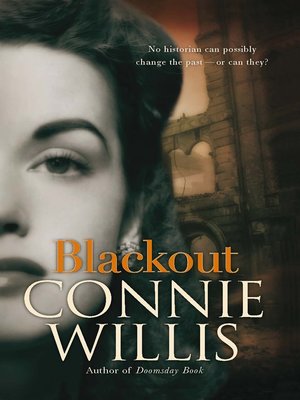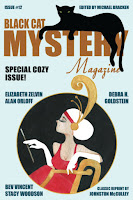When I heard the title of Dennis Duncan's new book my reaction was basically to pedal my bike to the local independent bookstore and yell "Take my money!"
I am fond of popular histories of scholarship. So I have decided to tell you a bit about some of my favorite books of this type, with random anecdotes from each. It has nothing to do with mystery fiction, so feel free to ignore me if you wish. I get that a lot.
Dennis Duncan. Index, A History of the. The index is one of those things we take for granted. Haven't they always been there, hiding at the back of nonfiction books, making them more usable? Of course, the answer is a lot more complicated.
Duncan points out three key ingredients you need before you can have an index. First, comes the ABCs. I don't mean the alphabet (duh), but the concept of organizing words in alphabetical order, which is a different thing. Then, you need the codex, which is what we think of as the structure of a book, (indexes don't work well with scrolls). The third essential we can date specifically: page numbers were first used in books in 1472.
This book includes all kinds of oddities: Indexes so long they had their own indexes. Indexes to novels. A short story in the form of an index. Indexes created by authors' political enemies to mock their books. A picture index of envelope fragment shapes (and that was in a book by a well-known author.)
Oh, and how about this fact: ancient librarians used to glue a scrap of parchment with author and title to the back of a scroll. The Greek term for that device was sillybos, from which we get the word syllabus. The Latin word was index.
Denis Boyles. Everything Explained That is Explainable. The eleventh edition of the Encyclopedia Britannica (1910-1911) is considered one of the greatest reference books. Its creation was part scholarship, part marketing scheme, and part con game.
The head publicist was Henry Haxton. Earlier in his career, working as a reporter for William Randolph Hearst, he tested the lifeboat system of the Oakland ferryboats by "accidentally" falling into the Bay. Fortunately the safety system turned out to be good enough.
The main editor for American entries was Franklin Hooper, who is drily described in the current edition of the Britannica as "undaunted by his own lack of scholarship."
The Americans who were running the encyclopedia project in coordination with the Times created something brand new: the Times Book Club. They sold books much cheaper than had previously been legal, causing mob scenes known as "bookstore madness."
And speaking of the Times, the entire encyclopedia project almost fell through because of the obstinacy of a family whose mighty power came from their owning one-seventh of one-third of one-fifth of three-sixteenths of that newspaper. This resulted in a lawsuit that was heard by Mr. Justice John Charles Darling, about whom, well…
Around the turn of the century barrister F.E. Smith was defending in capital case. After he gave a long and complex explanation of a point of law Justice Darling, complained: "Well, after all that, Mr. Smith, I am none the wiser."
Smith replied: "Perhaps none the wiser, m'lud, but certainly better informed." His client was executed.
Simon Garfield. Just My Type. Fifty years ago no one outside the publishing and design industries knew or cared much about printing fonts. Then came personal computers and now everyone has an opinion. I have seen college students argue furiously over serif vs san serif.
Garfield's book is a fascinating journey through the history of fonts. For example: in 1908 Thomas Cobden-Sanderson killed his classic Doves font by taking all the metal letters and throwing them into the Thames, so his partner could not profit from it.
In 1979 Japanese designer Eiichi Kono was selected to revise the iconic font used in London's subway system. Rather dryly, he first demonstrated his work with the word underglound.
The first thing I did when I got this book was search the index (there's that word again) for The Prisoner, because that science fiction TV classic was the first place I ever really noticed a font.
Turned out the unusual lettering used in the surreal claustrophobic Big-Brotherish Village is Albertus, the same one used on street signs in the City, which is the financial district of London. Hmm…
Garfield dedicates an entire chapter to the much despised Comic Sans. The title? "We Don't Serve Your Type."
Simon Winchester. The Professor and the Madman. When James Murray took on the task of creating the Oxford English Dictionary in 1857 he knew he would need help from hundreds of volunteers to track down unusual words and meanings in thousands of books. He had no way of knowing that his most useful contributor would be Dr. W.C. Minor, an American Civil War veteran imprisoned for murdering a stranger during a bout of paranoia.
This is the only book on my list which was made into a movie (starring Mel Gibson and Sean Penn, no less). The flick is worth watching although it does get Hollywoodish, even adding a love story to provide a motive for some of Minor's bizarre actions. (Here's a better motive: the man was crazy.)
Daniel Rosenberg and Anthony Grafton. Cartographies of Time. For hundreds of years people searched for a way to visualize the passage of time. This books shows dozens of examples.
Joseph Priestley, the discoverer of oxygen, cracked the problem in 1765 by inventing the timeline. Since the timeline, like the book index, is so much a part of our lives it is hard to grasp that someone needed to dream it up. This made me wonder: Did it seem just as natural to the people of Priestley's time as to us, or are we just used to it?
It turns out the former is true. Other authors started using timelines immediately. And it only took twenty years for William Playfair to add a y-axis and create the line graph.
Violet Moller. The Map of Knowledge. Moller says that when she was studying the history of science she was taught something like this: "There were the Greeks, and then the Romans, and then there was the Renaissance."
Moller thought a piece or two had to be missing from that story. Surely the Classical texts hadn't preserved themselves for a millennium. As she demonstrates there were thousands of rulers, scientists, scholars, publishers, and librarians who cataloged, preserved, and used those texts. Many of them spoke Arabic. (Of course this relates to the Chicon panel I mentioned last month, where scholars complained that the Middle Ages received a bad reputation because of Renaissance propaganda.)
You have probably heard of the great library of Alexandria, but you may not know of what we librarians would call their acquisitions policy: they wanted everything. Each ship which landed in Alexandria was searched and all books confiscated. When they borrowed texts from other libraries to copy they kept the original and sent back the duplicate. Sneaky, sneaky, librarians.
In the tenth century the library in Cordoba, Spain, had 404 volumes. That doesn't sound too impressive but I'm only talking about the catalog of their collection.
In the eleventh century Salerno, Italy, was considered the center of modern medicine in all of Europe. But a North African merchant who got sick there was so appalled by the ignorance of the doctors that he trained as a physician in his native Carthage and returned to Italy with hundreds of up-to-date medical texts.
In Venice, Italy, in 1502, a printer named Manutius started using a dolphin and anchor logo on his books, apparently the first "product brand." It was such a recognized symbol of quality work that other publishers began counterfeiting it.
About half of the texts of ancient Greek we have were written by the physician Galen. But since he was a doctor we can't read his handwriting. (Rimshot! Sorry...)
And now I shall go read a mystery.
















